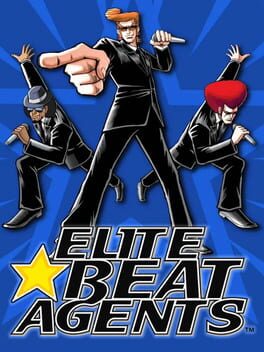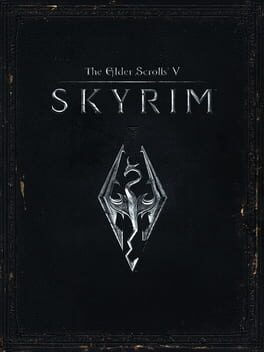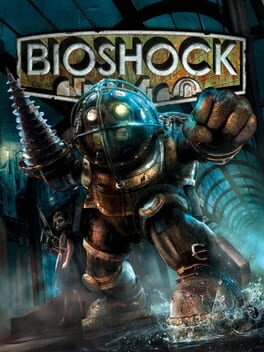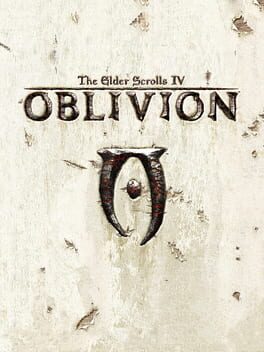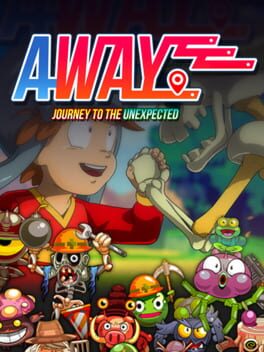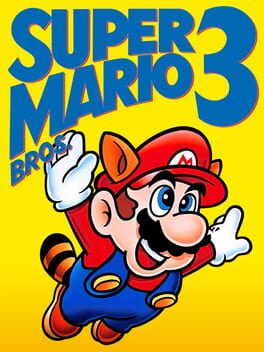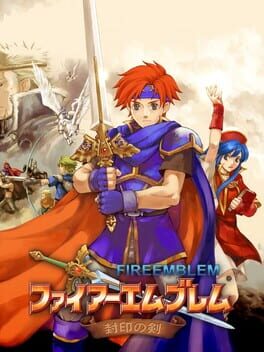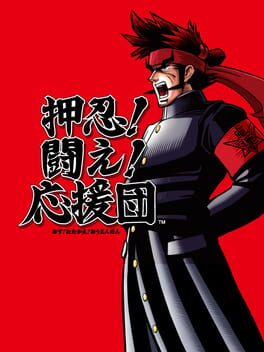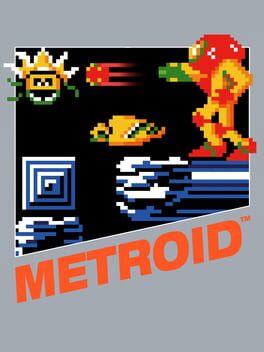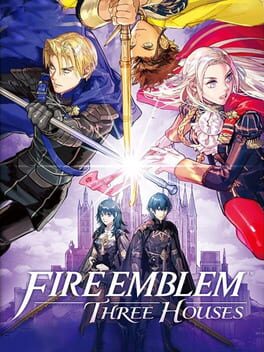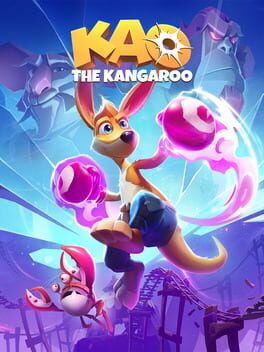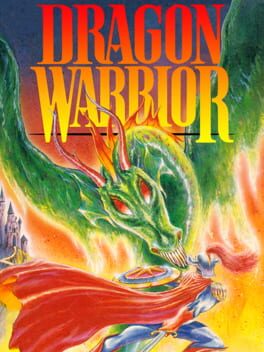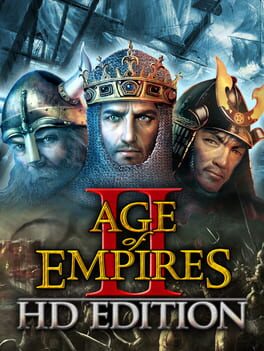Raith
2006
Every now and then a game will come around that completely changes the way you think about a system or genre. Elite Beat Agents is that game for the DS.
For the most part, the DS touchscreen was used for either a unique (but often worse) control scheme (such as using it for movement in Super Mario 64 DS rather than a traditional pad or joystick), cheap gimmicks, or was regulated to being the "menu" screen (or map in some cases). Rarely did it feel like the game "wouldn't be able to exist" without the touchscreen. Elite Beat Agents is not one of those games.
The gameplay involves touching rings in time with the beat of a song, with some twists here and there to keep it from feeling like they just replaced the classic DDR mat with tapping a screen. It is a game that only exists because the DS had a touchscreen, and honestly it alone justifies the system for having it. It's not the only game that utilized the touchscreen in a new and innovative way, but it is one that always sticks out in my mind when I think of "games that defined a console". When it comes to DS, Elite Beat Agents (and its predecessors in Japan) perfectly showcase what the DS is all about.
Full of Nintendo charm, gameplay that will keep you coming back for more and designed to take full advantage of the system's unique capabilities, Elite Beat Agents is a must play for any DS owner.
If you don't mind listening to some Japanese songs, Osu! Tatakae! Ouendan and its sequel are also 100% worth trying out. You don't need to understand the lyrics to have a great time with these amazing rhythm games.
For the most part, the DS touchscreen was used for either a unique (but often worse) control scheme (such as using it for movement in Super Mario 64 DS rather than a traditional pad or joystick), cheap gimmicks, or was regulated to being the "menu" screen (or map in some cases). Rarely did it feel like the game "wouldn't be able to exist" without the touchscreen. Elite Beat Agents is not one of those games.
The gameplay involves touching rings in time with the beat of a song, with some twists here and there to keep it from feeling like they just replaced the classic DDR mat with tapping a screen. It is a game that only exists because the DS had a touchscreen, and honestly it alone justifies the system for having it. It's not the only game that utilized the touchscreen in a new and innovative way, but it is one that always sticks out in my mind when I think of "games that defined a console". When it comes to DS, Elite Beat Agents (and its predecessors in Japan) perfectly showcase what the DS is all about.
Full of Nintendo charm, gameplay that will keep you coming back for more and designed to take full advantage of the system's unique capabilities, Elite Beat Agents is a must play for any DS owner.
If you don't mind listening to some Japanese songs, Osu! Tatakae! Ouendan and its sequel are also 100% worth trying out. You don't need to understand the lyrics to have a great time with these amazing rhythm games.
At one point in time, this game ranked as one of my favorites. The world of Skyrim sucked me in with its lore and its mysteries. It provided me with a world filled with discovery where even the smallest towns had a charm of their own, and a story to tell.
As I've played more games over the years though, particularly RPG's, I've come to realize just how shallow Skyrim really is.
To start, the combat sucks. Though it fixed the problem with enemies scaling with your character in Oblivion, it still feels like there is no depth to it at all. Even with the flashy kill cinematics, most combat encounters can be summarized as "stand in front of the enemy and spam your attack until either they die or you need to heal, at which point you can just pause combat and chug 10 potions". Stealth archers are still a little broken, with enemies just not bothering to check who just shot them in the face with an arrow, and even if they do there is a good chance they will never be able to reach you due to the horrible pathfinding on the A.I. To make things worse, the magic system is stripped completely down. You will be spamming the same three or four spells for the entire game, with little thought needed as to what spell is best for the current situation or how to combo spells and abilities together.
As for the writing, it's about the same as Oblivion. Some of the questlines are fun and interesting, but a majority of them are cliche and mediocre. The characters are all forgettable, often boiling down to one characteristic and a half dozen voice lines. It's kind of impressive how little I know or care about Lydia despite spending 40+ hours with her by my side. I have no idea what her backstory is, the things she likes or dislikes, or anything really. She doesn't have a personality. The characters that stand out tend to be ones that you see frequently, like the Jarl of Whiterun and the greybeards. Again though, despite how frequently you see them throughout the game, you will never really get to know them past the one dimensional characterization they are given. Almost all of their dialogue will be to explain some lore or details about their next quest to the player.
The best part of Skyrim is without a doubt its world. The world of Skyrim is a joy to explore, filled with lore and interesting sights to see. I wish the folks at Bethesda were not so hung up on filling their games with hundreds of things to do if they are not going to spend the time to craft it all with care though, because of the dozens and dozens of caves, bandit camps and tombs I explored only a few were actually enjoyable and engaging experiences. The vast majority of them almost feel procedurally generated, with corridors and hallways that look nearly identical from location to location. I want more Black Reach and Broken Ore Grotto, less random bandit camps and caves that have the same 4 enemies in them and randomly generated loot.
It's not the worst RPG you'll ever play, but it's far from the most interesting. Hopefully one day Bethesda will make a TES game that is as interesting as the worlds they are set in.
As I've played more games over the years though, particularly RPG's, I've come to realize just how shallow Skyrim really is.
To start, the combat sucks. Though it fixed the problem with enemies scaling with your character in Oblivion, it still feels like there is no depth to it at all. Even with the flashy kill cinematics, most combat encounters can be summarized as "stand in front of the enemy and spam your attack until either they die or you need to heal, at which point you can just pause combat and chug 10 potions". Stealth archers are still a little broken, with enemies just not bothering to check who just shot them in the face with an arrow, and even if they do there is a good chance they will never be able to reach you due to the horrible pathfinding on the A.I. To make things worse, the magic system is stripped completely down. You will be spamming the same three or four spells for the entire game, with little thought needed as to what spell is best for the current situation or how to combo spells and abilities together.
As for the writing, it's about the same as Oblivion. Some of the questlines are fun and interesting, but a majority of them are cliche and mediocre. The characters are all forgettable, often boiling down to one characteristic and a half dozen voice lines. It's kind of impressive how little I know or care about Lydia despite spending 40+ hours with her by my side. I have no idea what her backstory is, the things she likes or dislikes, or anything really. She doesn't have a personality. The characters that stand out tend to be ones that you see frequently, like the Jarl of Whiterun and the greybeards. Again though, despite how frequently you see them throughout the game, you will never really get to know them past the one dimensional characterization they are given. Almost all of their dialogue will be to explain some lore or details about their next quest to the player.
The best part of Skyrim is without a doubt its world. The world of Skyrim is a joy to explore, filled with lore and interesting sights to see. I wish the folks at Bethesda were not so hung up on filling their games with hundreds of things to do if they are not going to spend the time to craft it all with care though, because of the dozens and dozens of caves, bandit camps and tombs I explored only a few were actually enjoyable and engaging experiences. The vast majority of them almost feel procedurally generated, with corridors and hallways that look nearly identical from location to location. I want more Black Reach and Broken Ore Grotto, less random bandit camps and caves that have the same 4 enemies in them and randomly generated loot.
It's not the worst RPG you'll ever play, but it's far from the most interesting. Hopefully one day Bethesda will make a TES game that is as interesting as the worlds they are set in.
Although I have yet to finish Final Fantasy VII, I have played up to where the remake leaves off. So though I may not have the full context of this remakes changes over the original, I feel like I had enough to give this game an honest review.
From the story to the gameplay, the devs really put a lot of work into bringing the beloved classic to a new generation. The story is expanded incredibly well, giving a lot more time to flesh out characters and locations that were mostly breezed through in the original game. Particularly, the members of Avalanche not named Barret or Tifa are all given a lot more time to flesh out, and with the expanded locations you can get a much better idea of what life is like in the slums under the plates of Midgar.
In addition to just adding more into the first major act of the story, there are some subtle changes made throughout that culminate into a big reveal during the final chapter. This isn’t really a 1:1 retelling of the story, though it can feel really close most of the time. If you pay attention to certain changes made throughout, the larger changes to the story dropped in the final chapters of Remake piece together in a fun twist on the classic tale.
Gameplay on the other hand is not to subtle, as it has been completely revamped into an action-turnbased hybrid battle system. Like FFVII, the active time battle (ATB) system is the crux of combat. Instead of waiting for the bar to fill up in a turn based style battle though, the ATB gauge is filled by attacking and blocking. This leaves item and skill usage tied to the ATB gauge, with the rest of combat focused on using your basic attacks, defending and dodging.
I actually quite liked the new combat system, perhaps even more than FFVII original take on it. Waiting for the ATB gauges to fill isn’t that interesting, especially in low impact battles (such as with random enemy encounters). By allowing the player to attack and defend in the meantime it actually made every moment of battle engaging, and by the end of my 40+ hour playthrough I was still craving more. In fact, I was wishing there were more mini-boss and larger boss battles to really dive deep into its systems more.
This isn’t just a remake. In a lot of ways it a reimagining of a classic that provides a lot of fresh experiences for newcomers and veterans alike.
From the story to the gameplay, the devs really put a lot of work into bringing the beloved classic to a new generation. The story is expanded incredibly well, giving a lot more time to flesh out characters and locations that were mostly breezed through in the original game. Particularly, the members of Avalanche not named Barret or Tifa are all given a lot more time to flesh out, and with the expanded locations you can get a much better idea of what life is like in the slums under the plates of Midgar.
In addition to just adding more into the first major act of the story, there are some subtle changes made throughout that culminate into a big reveal during the final chapter. This isn’t really a 1:1 retelling of the story, though it can feel really close most of the time. If you pay attention to certain changes made throughout, the larger changes to the story dropped in the final chapters of Remake piece together in a fun twist on the classic tale.
Gameplay on the other hand is not to subtle, as it has been completely revamped into an action-turnbased hybrid battle system. Like FFVII, the active time battle (ATB) system is the crux of combat. Instead of waiting for the bar to fill up in a turn based style battle though, the ATB gauge is filled by attacking and blocking. This leaves item and skill usage tied to the ATB gauge, with the rest of combat focused on using your basic attacks, defending and dodging.
I actually quite liked the new combat system, perhaps even more than FFVII original take on it. Waiting for the ATB gauges to fill isn’t that interesting, especially in low impact battles (such as with random enemy encounters). By allowing the player to attack and defend in the meantime it actually made every moment of battle engaging, and by the end of my 40+ hour playthrough I was still craving more. In fact, I was wishing there were more mini-boss and larger boss battles to really dive deep into its systems more.
This isn’t just a remake. In a lot of ways it a reimagining of a classic that provides a lot of fresh experiences for newcomers and veterans alike.
2007
I feel like Bioshock is a product of a bygone era. An era where games were bigger, looked better and had all the features necessary to tell deep and interesting narratives compared to previous generations while maintaining a development cycle that allowed hits to roll out with ease. These days you might see a game like Bioshock every other year, if you’re lucky. In 2007 it felt like every year was packed full of haymakers and there was always a great, new experience waiting around the corner.
Where Bioshock shines is its storytelling. Mostly credited to Ken Levine, the story bears no shame on wearing its messaging and underlying philosophies on its sleeve. As you explore the nightmarish Rapture, a city that should have been a libertarian paradise, you’ll hear lectures from the cities founder Andrew Ryan as to why he created Rapture and his philosophy. You’ll also learn about the history of Rapture and some of its inhabitants.
One of Bioshock’s biggest strengths in its storytelling is its environmental storytelling. A lot of information is never outright told to you, meaning there is a lot to be learned through the simple act of exploring and taking in your surroundings. Though you’ll follow the story just fine if you only focus on going from point a to point b, you can learn a lot more about the world and the characters by exploring it. To help give some context to certain events or characters, audio logs are found randomly throughout the world that give Rapture a sense of history. At times you will feel like you are an investigator trying to unravel Rapture’s past.
Though I consider Bioshock’s narrative to be its strongest point, the gameplay and presentation are not far behind. Single player shooters need to do a lot to stand out from the crowd. The steampunk aesthetic and upgrade system certainly make Bioshock feel like a fresh experience. In addition to the usual weapons you’ll find in any other FPS, your character also can wield a variety of unique abilities you acquire through special “tonics” and “plasmids”. Though many of the powers you can find may seem rather dull, such as the ability to shock enemies or shoot fire, the juggle between using these powers and more traditional weapons was always fun and engaging. It gives the players more options in any given situation, giving the combat some extra legs it wouldn’t have had if you were stuck with using shotguns and rifles.
If you haven’t played Bioshock yet, you’re missing out on one of the 7th generation’s gems. Though this golden era of gaming has since passed, we can still enjoy all of its greatest triumphs today, and I strongly urge you to do so.
Where Bioshock shines is its storytelling. Mostly credited to Ken Levine, the story bears no shame on wearing its messaging and underlying philosophies on its sleeve. As you explore the nightmarish Rapture, a city that should have been a libertarian paradise, you’ll hear lectures from the cities founder Andrew Ryan as to why he created Rapture and his philosophy. You’ll also learn about the history of Rapture and some of its inhabitants.
One of Bioshock’s biggest strengths in its storytelling is its environmental storytelling. A lot of information is never outright told to you, meaning there is a lot to be learned through the simple act of exploring and taking in your surroundings. Though you’ll follow the story just fine if you only focus on going from point a to point b, you can learn a lot more about the world and the characters by exploring it. To help give some context to certain events or characters, audio logs are found randomly throughout the world that give Rapture a sense of history. At times you will feel like you are an investigator trying to unravel Rapture’s past.
Though I consider Bioshock’s narrative to be its strongest point, the gameplay and presentation are not far behind. Single player shooters need to do a lot to stand out from the crowd. The steampunk aesthetic and upgrade system certainly make Bioshock feel like a fresh experience. In addition to the usual weapons you’ll find in any other FPS, your character also can wield a variety of unique abilities you acquire through special “tonics” and “plasmids”. Though many of the powers you can find may seem rather dull, such as the ability to shock enemies or shoot fire, the juggle between using these powers and more traditional weapons was always fun and engaging. It gives the players more options in any given situation, giving the combat some extra legs it wouldn’t have had if you were stuck with using shotguns and rifles.
If you haven’t played Bioshock yet, you’re missing out on one of the 7th generation’s gems. Though this golden era of gaming has since passed, we can still enjoy all of its greatest triumphs today, and I strongly urge you to do so.
When I played this around 2009, I immediately fell in love with the world of Cyrodiil. The many towns I could visit and characters to meet, along with the deep lore you could explore all drew me into it. Unfortunately, as time has passed, I've gained a more critical eye towards the games I play and Oblivion has more than a few flaws in its design. The game that I once sank hundreds of hours into is so hard to go back to now that I really can't recommend it.
The biggest problems I have with Oblivion are it's lack of depth. It lacks depth in its characters, story and combat, three areas that I now see as pivotal in a good RPG. Characters lack interesting backstories and personalities, leaving a vast majority of the characters you meet feeling like cardboard cutouts that you have already met at some point in your quest. It's worsened by the fact that almost the entirety of the games characters are voiced by 13 people, worsening the feeling of déjà vu when meeting characters.
The storylines also lack depth, with the main questline involving a generic invasion plot that doesn't feel very satisfying to conclude. There are some interesting storylines to be found in side quests and the various factions, but even then things feel cheapened when you become the leader of every guild at the same time, and nothing really changes.
Lastly, the combat feels like it lack any kind of strategy or skill leaving it feeling like a slog the longer you play. Melee characters essentially just stand in front of enemies and spam their weapon swings until things die. If at any point your health dips dangerously low, you can just pause combat and guzzle a half dozen potions to bring yourself up to full in an instant. Potions are so plentiful too that you probably will never feel like you are running low, especially if you are using healing magic to supplement your healing abilities. Mages and Archers can feel even more dull, despite at least requiring you to aim your attacks during combat. The AI often gets stuck on objects trying to reach you, so many fights will feature you sitting in a safe place while whittling the enemies health down from a few feet away. The fact that all enemies are scaled to your level starts to drag the experience down as well as random bandits you might encounter questing will take up a few minutes of your time as they soak up all the damage you throw at them.
Overall, you will spend hundreds of hours to see all the content Oblivion has to offer and come away with a handful of memorable experiences in a game that should leave you with dozens. The characters all start to blur together, the combat quickly becomes mundane and the stories are completely hit or miss. It's a shame, because the world of Cyrodiil is so interesting from an outside looking in that you really want to explore and learn more about it. In the end though, you are better off exploring one of the other countless worlds to discover. Not only will it probably eat up less of your time, you will almost assuredly come away with a better experience. Unfortunately, I think the wonderful world and lore Oblivion has to offer is best experienced through the wiki for those truly interested in learning about what it has to offer to the world of Tamriel.
The biggest problems I have with Oblivion are it's lack of depth. It lacks depth in its characters, story and combat, three areas that I now see as pivotal in a good RPG. Characters lack interesting backstories and personalities, leaving a vast majority of the characters you meet feeling like cardboard cutouts that you have already met at some point in your quest. It's worsened by the fact that almost the entirety of the games characters are voiced by 13 people, worsening the feeling of déjà vu when meeting characters.
The storylines also lack depth, with the main questline involving a generic invasion plot that doesn't feel very satisfying to conclude. There are some interesting storylines to be found in side quests and the various factions, but even then things feel cheapened when you become the leader of every guild at the same time, and nothing really changes.
Lastly, the combat feels like it lack any kind of strategy or skill leaving it feeling like a slog the longer you play. Melee characters essentially just stand in front of enemies and spam their weapon swings until things die. If at any point your health dips dangerously low, you can just pause combat and guzzle a half dozen potions to bring yourself up to full in an instant. Potions are so plentiful too that you probably will never feel like you are running low, especially if you are using healing magic to supplement your healing abilities. Mages and Archers can feel even more dull, despite at least requiring you to aim your attacks during combat. The AI often gets stuck on objects trying to reach you, so many fights will feature you sitting in a safe place while whittling the enemies health down from a few feet away. The fact that all enemies are scaled to your level starts to drag the experience down as well as random bandits you might encounter questing will take up a few minutes of your time as they soak up all the damage you throw at them.
Overall, you will spend hundreds of hours to see all the content Oblivion has to offer and come away with a handful of memorable experiences in a game that should leave you with dozens. The characters all start to blur together, the combat quickly becomes mundane and the stories are completely hit or miss. It's a shame, because the world of Cyrodiil is so interesting from an outside looking in that you really want to explore and learn more about it. In the end though, you are better off exploring one of the other countless worlds to discover. Not only will it probably eat up less of your time, you will almost assuredly come away with a better experience. Unfortunately, I think the wonderful world and lore Oblivion has to offer is best experienced through the wiki for those truly interested in learning about what it has to offer to the world of Tamriel.
This isn't the first game to dupe me into buying it with it's beautiful visuals, and it won't be the last.
The unique visual style of this game had me interested immediately way back when Nintendo showed it off at one of their indie directs, and upon finally booting it up was impressed to be greeted by a fully animated opening. My hopes were high that a game with this much polish visually would deliver a fun and memorable experience.
Unfortunately, the visuals are about all there is to remember about this game. This is a rougelite, meaning you will go through the games levels until you either die or hit a roadblock forcing you to restart, at which point you'll go through the game again and again gradually building up your character and unlocking new things for future playthroughs. After just one playthrough of this games loop though, I was bored out of my mind and ready to move on. And it only took about an hour, two levels total, to reach that point.
Combat is in first person, but judging if you are close enough to hit or get hit is virtually impossible. Sometimes it feels random if your going to take a hit or not. Combat can basically be summed up as "press the attack button as much as possible and hopefully one of the melee swings will connect before you get hit". There is zero depth. Some characters have projecticles that need to be aimed, but an energy system that limits how often you can use a character makes sure you"re never having too much fun. You'll be spamming that attack button with the main character more often than not.
To top it off, enemies are super simple offering very little challenge. All together it makes for one very boring game.
This is a very beautiful looking bad game. Don't be fooled and waste your time on this one.
The unique visual style of this game had me interested immediately way back when Nintendo showed it off at one of their indie directs, and upon finally booting it up was impressed to be greeted by a fully animated opening. My hopes were high that a game with this much polish visually would deliver a fun and memorable experience.
Unfortunately, the visuals are about all there is to remember about this game. This is a rougelite, meaning you will go through the games levels until you either die or hit a roadblock forcing you to restart, at which point you'll go through the game again and again gradually building up your character and unlocking new things for future playthroughs. After just one playthrough of this games loop though, I was bored out of my mind and ready to move on. And it only took about an hour, two levels total, to reach that point.
Combat is in first person, but judging if you are close enough to hit or get hit is virtually impossible. Sometimes it feels random if your going to take a hit or not. Combat can basically be summed up as "press the attack button as much as possible and hopefully one of the melee swings will connect before you get hit". There is zero depth. Some characters have projecticles that need to be aimed, but an energy system that limits how often you can use a character makes sure you"re never having too much fun. You'll be spamming that attack button with the main character more often than not.
To top it off, enemies are super simple offering very little challenge. All together it makes for one very boring game.
This is a very beautiful looking bad game. Don't be fooled and waste your time on this one.
1988
The best NES game? Probably. There is only one other game I can think of that comes close, and I'll reserve judgement on that when I eventually get to my replay (at which point, I'll be sure to update this review with my definitive answer to this question).
There is basically a second NES hidden away inside the cart of this game, one of the benefits of being a late NES release. That extra power is used to expand the formula of the first Super Mario Bros in all the right ways. A world map, a selection of different powerups to discover, 8 unique worlds with different themes, and a fresh coat of paint which still holds up to this day. SMB3 is one of the few NES games that is still just as good to play today as it was to play when it released over 30 years ago. Easily in the top 10 platformers ever made.
Do I need to say more? Play this game if you haven't. It's "required playing" in the video game cannon.
There is basically a second NES hidden away inside the cart of this game, one of the benefits of being a late NES release. That extra power is used to expand the formula of the first Super Mario Bros in all the right ways. A world map, a selection of different powerups to discover, 8 unique worlds with different themes, and a fresh coat of paint which still holds up to this day. SMB3 is one of the few NES games that is still just as good to play today as it was to play when it released over 30 years ago. Easily in the top 10 platformers ever made.
Do I need to say more? Play this game if you haven't. It's "required playing" in the video game cannon.
This is the 7th Fire Emblem title I have played, and still I want to play more. The formula of Fire Emblem is near perfect.
The tight strategy gameplay and host of characters to recruit keep things interesting throughout. The perma-death mechanic adds tension to every move and really makes you think about your turns a way other strategy games don't. You have to think multiple turns ahead to ensure you can reach your objectives and keep your party safe. One misstep and an enemy ambush could easily take out one or two important characters. It's a pretty standard Fire Emblem affair in that regard.
As for what this title does a bit differently, there are a series of unlockable hidden levels throughout the game one must complete in order to get the "true ending". I like this idea a lot actually, as it makes subsequent replays more interesting. I didn't realize until near the end of the game that you had to complete these chapters to reach the 3 final chapters, so if I ever decide to come back to this title there is more content I haven't seen waiting for me.
The difficulty is a bit spikey at times, but if you take your time and have some experience with strategy games its nothing a regular player cannot handle. There are some maps which are rather annoying to play such as one which takes place in a desert, limiting both visibility and movement. But with proper preparation and tight gameplay you can get through it.
The story of FE6 is rather basic, which is one of its weaker elements. Somehow it doesn't seem that much more fleshed out than the NES or SNES titles despite featuring support conversations to expand on characters and lore. The dialogue and plot is a rather standard fantasy affair though with armies marching on each other, minor politicking and the threat of world annihilation by an ancient powerful being. A lot of the characters are rather forgettable too, also leaning on some standard tropes as their main character traits. It's not bad or boring, but the writing does feel very "standard", and if in a few months I can't remember most of the details or cast I wouldn't be surprised.
Overall great game, well worth your time. Is it the best Fire Emblem? No. I don't think it's even the best Fire Emblem on GBA. But it's still one of the better RPG's you're going to find on the system and worth checking out.
The tight strategy gameplay and host of characters to recruit keep things interesting throughout. The perma-death mechanic adds tension to every move and really makes you think about your turns a way other strategy games don't. You have to think multiple turns ahead to ensure you can reach your objectives and keep your party safe. One misstep and an enemy ambush could easily take out one or two important characters. It's a pretty standard Fire Emblem affair in that regard.
As for what this title does a bit differently, there are a series of unlockable hidden levels throughout the game one must complete in order to get the "true ending". I like this idea a lot actually, as it makes subsequent replays more interesting. I didn't realize until near the end of the game that you had to complete these chapters to reach the 3 final chapters, so if I ever decide to come back to this title there is more content I haven't seen waiting for me.
The difficulty is a bit spikey at times, but if you take your time and have some experience with strategy games its nothing a regular player cannot handle. There are some maps which are rather annoying to play such as one which takes place in a desert, limiting both visibility and movement. But with proper preparation and tight gameplay you can get through it.
The story of FE6 is rather basic, which is one of its weaker elements. Somehow it doesn't seem that much more fleshed out than the NES or SNES titles despite featuring support conversations to expand on characters and lore. The dialogue and plot is a rather standard fantasy affair though with armies marching on each other, minor politicking and the threat of world annihilation by an ancient powerful being. A lot of the characters are rather forgettable too, also leaning on some standard tropes as their main character traits. It's not bad or boring, but the writing does feel very "standard", and if in a few months I can't remember most of the details or cast I wouldn't be surprised.
Overall great game, well worth your time. Is it the best Fire Emblem? No. I don't think it's even the best Fire Emblem on GBA. But it's still one of the better RPG's you're going to find on the system and worth checking out.
See review of Elite Beat Agents for further thoughts
If you liked Elite Beat Agents (and let's be honest, if you found yourself here you probably did) Osu! Tatakae! Ouendan is more of the unbelievably good gameplay with a Japanese twist. Even if you aren't that into Japanese culture or music and that aspect of the game is not of interest to you, just tapping along to the beats is enough reason to play in my opinion. Even in a foreign language, you can enjoy the rhythm of the tracks as you tap the screen to the beats.
To be fair, Elite Beat Agents is technically Osu with an American twist, but that's besides the point. Play this game!
If you liked Elite Beat Agents (and let's be honest, if you found yourself here you probably did) Osu! Tatakae! Ouendan is more of the unbelievably good gameplay with a Japanese twist. Even if you aren't that into Japanese culture or music and that aspect of the game is not of interest to you, just tapping along to the beats is enough reason to play in my opinion. Even in a foreign language, you can enjoy the rhythm of the tracks as you tap the screen to the beats.
To be fair, Elite Beat Agents is technically Osu with an American twist, but that's besides the point. Play this game!
I have a feeling this game has seen significant changes to balance over the years, because the experience I had playing through Dark Souls for the first time was a far cry from the reputation it had gained in the early days of its release.
Sure, some things are a little obtuse and you can find yourself stuck or making things a lot more difficult for yourself if you don't pay attention to everything, but I would honestly call Dark Souls a fairly reasonable game difficulty wise.
My shattered expectations aside, Dark Souls is a well crafted game and it's easy to see why it spawned possibly one of the most iconic sub-genres since the "Doom-like".
The story and lore is intriguing, wrapped in mystery. So much is left up to the player to investigate that there are entire elements of the game locked behind finding and helping certain individuals that you can easily miss. When I went to face the final boss, I did so knowing I had seen only a fraction of what the world had to offer. Future playthroughs will probably be done with a guide to find the games many secrets.
The areas I didn't enjoy so much were the lack of good fast travel in the early game (shortcuts don't cut it when I'm still having to run for 5-10 minutes) that made backtracking a chore. I also think the games difficulty curve was a bit out of whack, with the end game being incredibly easy compared to earlier parts. This was probably due to some overpowered gear, but almost all of the final bosses consisted of me just running up and bonking them with my big club until they died. Very little strategy or learning attack patterns like in the early stages of the game. It wasn't until the final boss that I even had to change my load out so I could parry attacks, at which point the fight was trivial.
Overall, happy to finally play through one of the most important games of the 360/PS3 generation.
Sure, some things are a little obtuse and you can find yourself stuck or making things a lot more difficult for yourself if you don't pay attention to everything, but I would honestly call Dark Souls a fairly reasonable game difficulty wise.
My shattered expectations aside, Dark Souls is a well crafted game and it's easy to see why it spawned possibly one of the most iconic sub-genres since the "Doom-like".
The story and lore is intriguing, wrapped in mystery. So much is left up to the player to investigate that there are entire elements of the game locked behind finding and helping certain individuals that you can easily miss. When I went to face the final boss, I did so knowing I had seen only a fraction of what the world had to offer. Future playthroughs will probably be done with a guide to find the games many secrets.
The areas I didn't enjoy so much were the lack of good fast travel in the early game (shortcuts don't cut it when I'm still having to run for 5-10 minutes) that made backtracking a chore. I also think the games difficulty curve was a bit out of whack, with the end game being incredibly easy compared to earlier parts. This was probably due to some overpowered gear, but almost all of the final bosses consisted of me just running up and bonking them with my big club until they died. Very little strategy or learning attack patterns like in the early stages of the game. It wasn't until the final boss that I even had to change my load out so I could parry attacks, at which point the fight was trivial.
Overall, happy to finally play through one of the most important games of the 360/PS3 generation.
1986
There are certainly some great ideas in Metroid's first outing, but it is plagued by poor design choices that lead to a more frustrating experience than a fun one.
Getting the good out of the way, the first Metroid really nailed the sense of exploration and loneliness the series is known for. Stumbling into a new corridor or finding a new area of the map has such a good sense of discovery.
Unfortunately, the levels are not designed in such a way to be easily explored. Recurring layouts can make the exploration a chore as you keep going back to the same places without realizing. You are going to need to use a guide or keep a piece of paper handy to map out where you have been and points of interest you need to return to. This could be forgiven as just a product of it's time (even though the sequel on the Gameboy was able to implement a map feature to completely fix this issue) if it wasn't for the obtuse level design that constantly hides areas you have to reach in order to progress.
Random blocks in the floor, ceiling or wall can be shot to reveal hidden passages and there is nothing to reveal where these passages are. This leads to a lot of backtracking, blasting away at every surface you can see once you realize these hidden passages are there. I wouldn't mind if there was some indication as to where these passages were (such as slightly off color tiles to reveal their location or some hint in the level design that would lead you to believe there is something behind the solid surface) but there isn't. You're left to just blast everything you see.
The other part of the games design that often leads to frustration is the abysmal drop rate of items from enemies. If you are unfortunate enough to die at any part of the game, you'll be forced to grind enemies for upwards of 15 minutes to recover your health and missiles to attempt a challenge again. This was a common part of design in early NES games (the original Mega Man comes to mind), meant to increase the challenge and inflate play time. But getting another 1-2 hours out of a game by forcing players to mindlessly grind enemies is not what I call fun nor engaging gameplay.
The sequel on Gameboy fixes most of the problems found in the original, but unfortunately exploration became a lot more linear and the repeated boss fights make areas feel too samey. It wasn't until Super Metroid that they finally perfected the formula, producing what many consider one of the best games ever made.
Getting the good out of the way, the first Metroid really nailed the sense of exploration and loneliness the series is known for. Stumbling into a new corridor or finding a new area of the map has such a good sense of discovery.
Unfortunately, the levels are not designed in such a way to be easily explored. Recurring layouts can make the exploration a chore as you keep going back to the same places without realizing. You are going to need to use a guide or keep a piece of paper handy to map out where you have been and points of interest you need to return to. This could be forgiven as just a product of it's time (even though the sequel on the Gameboy was able to implement a map feature to completely fix this issue) if it wasn't for the obtuse level design that constantly hides areas you have to reach in order to progress.
Random blocks in the floor, ceiling or wall can be shot to reveal hidden passages and there is nothing to reveal where these passages are. This leads to a lot of backtracking, blasting away at every surface you can see once you realize these hidden passages are there. I wouldn't mind if there was some indication as to where these passages were (such as slightly off color tiles to reveal their location or some hint in the level design that would lead you to believe there is something behind the solid surface) but there isn't. You're left to just blast everything you see.
The other part of the games design that often leads to frustration is the abysmal drop rate of items from enemies. If you are unfortunate enough to die at any part of the game, you'll be forced to grind enemies for upwards of 15 minutes to recover your health and missiles to attempt a challenge again. This was a common part of design in early NES games (the original Mega Man comes to mind), meant to increase the challenge and inflate play time. But getting another 1-2 hours out of a game by forcing players to mindlessly grind enemies is not what I call fun nor engaging gameplay.
The sequel on Gameboy fixes most of the problems found in the original, but unfortunately exploration became a lot more linear and the repeated boss fights make areas feel too samey. It wasn't until Super Metroid that they finally perfected the formula, producing what many consider one of the best games ever made.
The saying "it's the journey, not the destination" couldn't be more true. After over 70 hours, I was kind of surprised how abruptly everything wrapped up. 18 chapters about political intrigue and war, only for the final battle with Edlegard to kind of just happen without much fanfare. Then, the big baddies are finally revealed, only to immediately kill them lol. But wait there's more! A world ending threat appears?! That's shouldn't take more than exactly one chapter to deal with.
Aside from the ending (which I thought was quite sloppy) the writing throughout the rest of the game was a bit hit or miss. The political backdrop was actually quite interesting, and seeing characters switch sides depending on where their houses allegiance was some of the best writing I've seen in a Fire Emblem game (or dare I say, in gaming in general). Then there are certain parts and dialogues (particularly in support conversations) that vary from stiff to down right comical.
Gameplay follows the writing in the middle of the road aspect. There is so much to do and so many options given to you in the "monastery" portion of the game that allow you to get stat boosting items, improve support ranks, boost skills, gain useful items and gold... only to be paired with one of the easiest Fire Emblems I've played. Ultimately the added gameplay elements introduced feel more like fluff more than anything. They added 20 or so hours to my playthrough probably, only for it to feel like it wasn't at all necessary. I maxed the supports on most of my team by the 3/4 mark without even trying for most of the playthrough, but I still have hundreds of gifts, lost items, teas, and ingredients sitting in my inventory.
Overall, really great Fire Emblem for the cast of characters and interesting story introduced, but ultimately against the larger landscape of games it doesn't hold up so well. I would suggest fans of the series to start off on a higher difficulty to avoid steamrolling the entire game and not getting much out of all the extra mechanics added.
Aside from the ending (which I thought was quite sloppy) the writing throughout the rest of the game was a bit hit or miss. The political backdrop was actually quite interesting, and seeing characters switch sides depending on where their houses allegiance was some of the best writing I've seen in a Fire Emblem game (or dare I say, in gaming in general). Then there are certain parts and dialogues (particularly in support conversations) that vary from stiff to down right comical.
Gameplay follows the writing in the middle of the road aspect. There is so much to do and so many options given to you in the "monastery" portion of the game that allow you to get stat boosting items, improve support ranks, boost skills, gain useful items and gold... only to be paired with one of the easiest Fire Emblems I've played. Ultimately the added gameplay elements introduced feel more like fluff more than anything. They added 20 or so hours to my playthrough probably, only for it to feel like it wasn't at all necessary. I maxed the supports on most of my team by the 3/4 mark without even trying for most of the playthrough, but I still have hundreds of gifts, lost items, teas, and ingredients sitting in my inventory.
Overall, really great Fire Emblem for the cast of characters and interesting story introduced, but ultimately against the larger landscape of games it doesn't hold up so well. I would suggest fans of the series to start off on a higher difficulty to avoid steamrolling the entire game and not getting much out of all the extra mechanics added.
2022
If you made an average 3D platformer and then went back to take all the fun out, you'd be left with something resembling this game.
There is a weird perception in the dev community that what people liked about Mario 64 or Banjo Kazooie (games from the golden era of 3D platformer "collectathons") was that there were a lot of things to collect.
Collecting things is just a means to an end. A goal to give the player that allows for the real gameplay to take place, the platforming.
Good 3D platformers have fun movement that makes the simple act of running around collecting random stuff engaging. The classic scenario for someone booting up SM64 for the first time was that they spent the first 10 minutes just running and jumping around outside the castle before ever stepping foot into the first level.
Kao is not fun to play. The movement is slow and straightforward, with no interesting movement options. The jumping is imprecise, with Kao clipping through or sliding off platforms constantly. They didnt even bother trying to make combat somewhat unique. Just mash the punch button.
The only thing this game has going for it is the fact that the devs filled each if its levels with lots of things to collect. That's it.
Even the most die hard fans of games with collectables will have a hard time getting through this one. Not because of well placed secrets or clever level design though, but because you'll be battling trying to stay awake while playing it.
There is a weird perception in the dev community that what people liked about Mario 64 or Banjo Kazooie (games from the golden era of 3D platformer "collectathons") was that there were a lot of things to collect.
Collecting things is just a means to an end. A goal to give the player that allows for the real gameplay to take place, the platforming.
Good 3D platformers have fun movement that makes the simple act of running around collecting random stuff engaging. The classic scenario for someone booting up SM64 for the first time was that they spent the first 10 minutes just running and jumping around outside the castle before ever stepping foot into the first level.
Kao is not fun to play. The movement is slow and straightforward, with no interesting movement options. The jumping is imprecise, with Kao clipping through or sliding off platforms constantly. They didnt even bother trying to make combat somewhat unique. Just mash the punch button.
The only thing this game has going for it is the fact that the devs filled each if its levels with lots of things to collect. That's it.
Even the most die hard fans of games with collectables will have a hard time getting through this one. Not because of well placed secrets or clever level design though, but because you'll be battling trying to stay awake while playing it.
1986
It's easy to see why this game became such a sensation upon release. The bones of what makes a great JRPG are all there, and the Akira Toriyama designs are wonderful.
But in the grand scheme of the NES library this was very much a rough draft. The story is kind of inconsequential and the game really just boils down to "grind here for experience and gold in order to move to the next area where you'll do the same thing".
Within a year the first Final Fantasy was released that introduced real quest lines and a world that was full of discovery, plus a new level of strategy with the player deciding the party composition and things like elemental weaknesses.
So is it a must play? I think everyone should probably at least experience it somehow to see what is widely considered the grandfather of JRPGs. But I don't think it's necessary to grind your way through the whole game. There just isn't enough substance to sustain it the whole way through.
But in the grand scheme of the NES library this was very much a rough draft. The story is kind of inconsequential and the game really just boils down to "grind here for experience and gold in order to move to the next area where you'll do the same thing".
Within a year the first Final Fantasy was released that introduced real quest lines and a world that was full of discovery, plus a new level of strategy with the player deciding the party composition and things like elemental weaknesses.
So is it a must play? I think everyone should probably at least experience it somehow to see what is widely considered the grandfather of JRPGs. But I don't think it's necessary to grind your way through the whole game. There just isn't enough substance to sustain it the whole way through.
This was my first experience with Age of Empires II, and honestly I'm sad I missed out on it so many years ago. It is possibly the greatest strategy game I have ever played, and the only reason I have not given it a perfect score is because there is a certain RTS series I have yet to sink my teeth into that I feel could potential take that spot.
First let me just talk about the gameplay. It is incredibly deep and skill intensive, yet it is so easy to get into that I casually got a friend who only played FPS games to play with me only for both of us to be hooked for months.
You don't need to have crazy micromanagement skill or APM (actions per minute, or how fast you can do things) in order to have fun here. Amassing huge armies to smash into each other is fun no matter your skill level, and joining in large 4v4 wars will never be anything but utter, brilliant chaos. For me and my friend who was new to the genre, we would do 2v2v2v2 against AI slightly harder than he could manage by himself. This lead to many great games where we had to defend against onslaughts of enemies and claw our way to victory. Were we perfectly collecting resources and upgrading our units in the optimal order? Far from it. We could barely notice though as our armies clashed into each other, only for a third or even forth army to join the fray and completely change the outlook of a battle.
If you do decide to dive into the games strategy a bit more though, it is incredibly easy to get into and begin improving. Something as simple as looking online for tutorials on "build orders", or the general order in which you should take certain actions, will immediately click and improve your gameplay.
Though the original launched with 13 civilizations to play as (a later expansion later brought that number to 18), this HD edition brought this number up to 31 after releasing 3 of its own expansions. Honestly, the 13 civilizations of the base game would still have been enough for me to consider this game one of the all-time greats in the genre, but by more than doubling that number AOE II has made sure that players will never want for variety. There are thousands of variations you can play when factoring in enemy civilizations and maps.
In the end, AoE II provides an incredibly rich and exciting experience for players of all skill levels. Whether you're playing a 3 hour game where armies in the hundreds clash against one another or you are a competitive player who will try and rush your opponent down before they can get out of the bronze age, you'll have a blast playing. If you have even a passing interest in RTS games, this is a must play.
First let me just talk about the gameplay. It is incredibly deep and skill intensive, yet it is so easy to get into that I casually got a friend who only played FPS games to play with me only for both of us to be hooked for months.
You don't need to have crazy micromanagement skill or APM (actions per minute, or how fast you can do things) in order to have fun here. Amassing huge armies to smash into each other is fun no matter your skill level, and joining in large 4v4 wars will never be anything but utter, brilliant chaos. For me and my friend who was new to the genre, we would do 2v2v2v2 against AI slightly harder than he could manage by himself. This lead to many great games where we had to defend against onslaughts of enemies and claw our way to victory. Were we perfectly collecting resources and upgrading our units in the optimal order? Far from it. We could barely notice though as our armies clashed into each other, only for a third or even forth army to join the fray and completely change the outlook of a battle.
If you do decide to dive into the games strategy a bit more though, it is incredibly easy to get into and begin improving. Something as simple as looking online for tutorials on "build orders", or the general order in which you should take certain actions, will immediately click and improve your gameplay.
Though the original launched with 13 civilizations to play as (a later expansion later brought that number to 18), this HD edition brought this number up to 31 after releasing 3 of its own expansions. Honestly, the 13 civilizations of the base game would still have been enough for me to consider this game one of the all-time greats in the genre, but by more than doubling that number AOE II has made sure that players will never want for variety. There are thousands of variations you can play when factoring in enemy civilizations and maps.
In the end, AoE II provides an incredibly rich and exciting experience for players of all skill levels. Whether you're playing a 3 hour game where armies in the hundreds clash against one another or you are a competitive player who will try and rush your opponent down before they can get out of the bronze age, you'll have a blast playing. If you have even a passing interest in RTS games, this is a must play.
